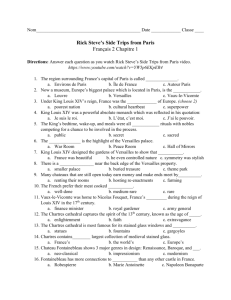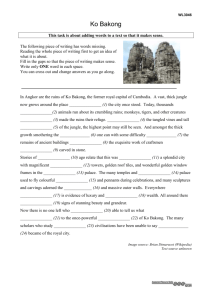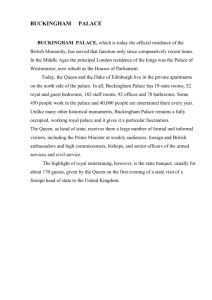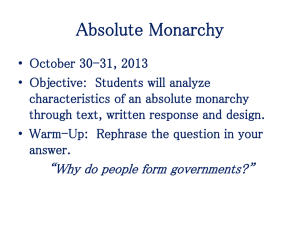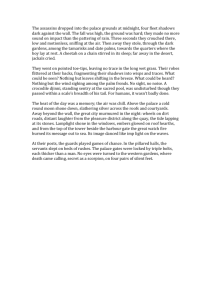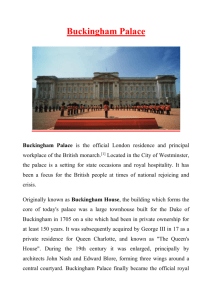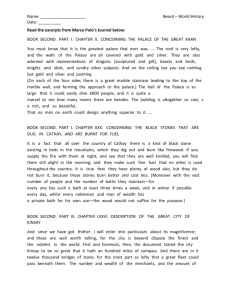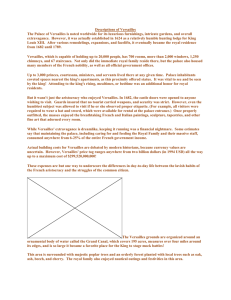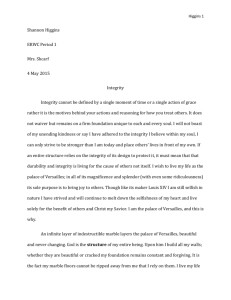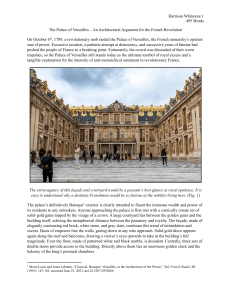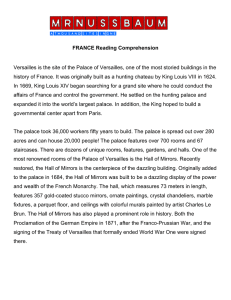English Bill of Rights, John Locke, and Baron De Montesquieu, J.J.
advertisement
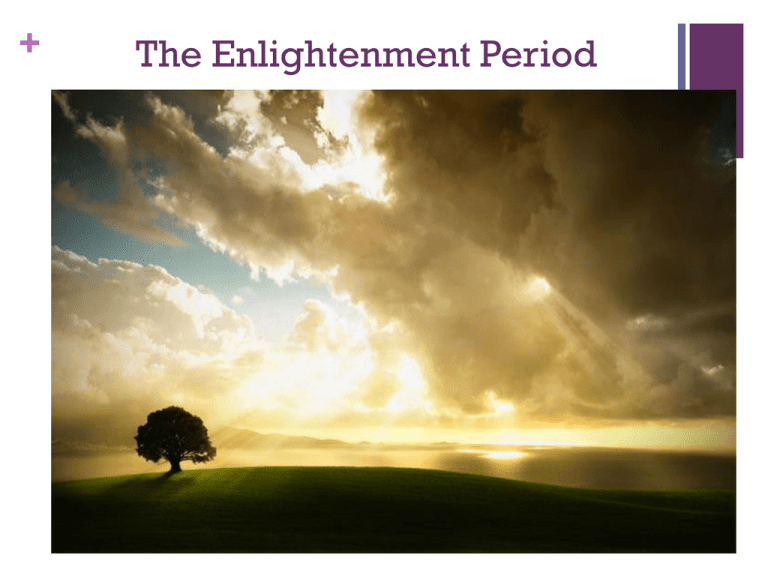
+ The Enlightenment Period + Niccolo Machiavelli • Born in Florence Italy 1469 – 1527. • Historian, Playwright, and Political Theorist. • Concerned with examining political and historical problems. • Published The Prince. gain, maintain, and centralize power by ANY means. • Suspected of plotting against the Medici, jailed, tortured, and exiled. • Writings became more widely known in the mid16th century. • Book was banned by Church. + FRANCE 17th Century 1650’s France was the most prosperous and populated country in Europe. Catholic Church had enormous power over the people and government. The Monarchy was powerful and had absolute control over France and its people. France had a booming economy and a middle class was growing. + KING LOUIS XIV (14th) Was known as the “SUN KING” because France’s Power was known around the world. He had the longest reign in France 66 years. He believed in Divine Right. He took away power from the nobles and gave it to the merchants. He had a beautiful lavish palace built outside of Paris known as “Versailles Palace.” Where did the Royal Family live? QuickTime™ and a TIFF (Uncompressed) decompressor are needed to see this picture. The Versailles Palace The royal residence from 1682 until 1789. Versailles, holds up to 20,000 people, has 700 rooms, more than 2,000 windows, 1,250 chimneys, and 67 staircases. Not only did the royal family live there, but the palace also housed many members of the French nobility, as well as all official government offices. Up to 3,000 princes, courtesans, ministers, and servants lived there at any given time. VERSAILLES PALACE How Much did it cost to run this place? Caring for and feeding the Royal Family and their massive staff, consumed anywhere from 6-25% of the entire French government income. + Who was Thomas Hobbes? • An English Philosopher and Political Theorist (1588 – 1679). • Believed human beings were naturally cruel, selfish, and greedy, and were driven by a relentless desire for power. • Governments were needed to protect people from their own selfish nature, and thus could not be trusted to make decisions for society as a whole. • Wrote book titled Leviathan. Title is used to describe society as a giant “artificial man.” • One of the first thinkers to apply the tools of the Scientific Revolution to deal with the problems of politics. • Argued that Kings should have absolute power. +Who was John Locke? Born in England (1632 – 1704) Wrote A Letter Concerning Toleration & and Two Treatise of Government. Believed in Natural Rights, which people were born with: life, liberty, and property. His ideas impacted the U.S. Declaration of Independence. He believed woman were equal to men and should be allowed to participate in government. Believed people were reasonable, logical, and could govern themselves. If the government did not do their job, he believed that people should rebel and overthrow the govt. + Jean Jacques Rousseau • Born in Geneva (1712 – 1778) • Educated as an orthodox Calvinist. • Wrote in 1762 about a social contract . • “Man is born free and is everywhere in chains.” • Believed man, in his natural state, was entirely free and virtuous and society corrupted man. + Baron de Montesquieu A French Enlightenment Thinker (1689-1755) Believed in a Separation of Powers in Government. Separation of Powers: 3 Branches of Government 1. Executive Branch 2. Legislataive Branch 3. Judicial Branch He influenced the American Constitution and government. + Voltaire • Born Francois Marie Arouet in Paris (1694 – 1778) • Wrote about philosophical rationalism and frequently criticize the Church. • Imprisoned for 11 months for writing a scathing satire of the French government. • During sentence, wrote “Oedipe” and adopted his pen name “Voltaire” • 1726, insults powerful young nobleman, “Chevalier De Rohan,” and given two options: imprisonment or exile. • Moves to England, studies English Constitutional Monarchy and their religious tolerance. • Returns to Paris, writes a book praising England’s Customs. Gov takes it as insult and forces him to leave once again. + Other Political Theorists + John Locke of England and King Louis XIV of France
